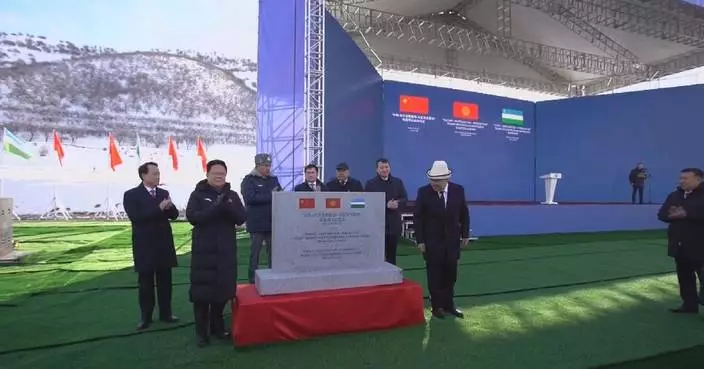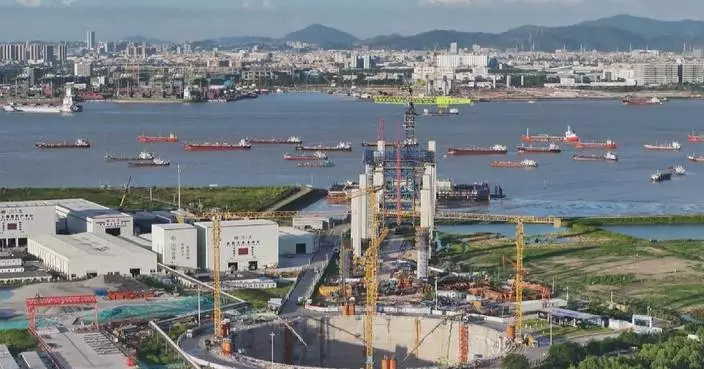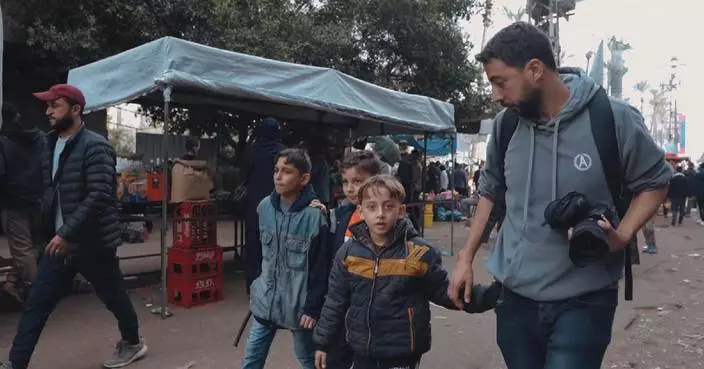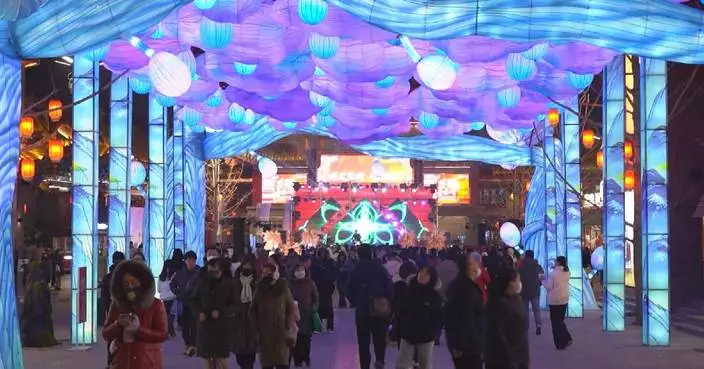China's updated visa-free transit policy has sparked interests among international travelers eager to experience traditional Chinese culture, creating more opportunities for the country's tourism and related industries.
Last week, the National Immigration Administration announced the extension of permitted stay for eligible foreign travelers from the original 72 and 144 hours to 240 hours, or 10 days.
Under the updated policy, eligible citizens from 54 countries, including Russia, Brazil, Britain, the United States and Canada, can enter China visa-free when transiting to a third country or region.
This change has been met with enthusiasm by international travelers, such as German tourists who visited the Forbidden City in Beijing in traditional costumes.
"I just like that it looks nice. I want to experience the culture and I saw the traditional clothing, so I was like I will try it," said a tourist from Germany.
"Like it's really pretty,the Chinese dress. I chose green and pink because it's like shining," said another German visitor.
The streamlined process has enhanced their travel experience and also facilitated business travel.
"I would say before it was quite difficult, not only for tourism, but also for business. But now I see a lot of foreigners coming in since the policy changed, I would say. I think it's quite a good opportunity for both, for tourists, but I think especially also for business," said another visitor.
"It will make it easier for people to come and visit and hope it will be hassle free with all the papers," said a visitor from Brazil.
"I think it's amazing. I've told my friends about it and invited them to come and see me, because I think it's a brilliant place to see and live, and we should learn more about it," said a British visitor.
The increase in international travelers is set to bring more opportunities for China's tourism sector. Tongcheng Travel, an online travel service provider, reported an 87-percent surge in searches for hotels and flights by overseas visitors after the policy announcement on Dec 17.
Apart from the expanded transit visa-free policy, China has established visa-free agreements with 26 countries, granted unilateral visa-free access to 38 countries, including France and Germany, and signed mutual visa exemption agreements with 157 countries.
"Before the visa-free policy, there were a few dozen Italian tourists in my group each year. This year, I've already hosted hundreds. Travel agencies should hire more people and upgrade services from transportation and dining to hotel bookings, to cater to the increased demand," said a tour guide for a travel group from Italy.
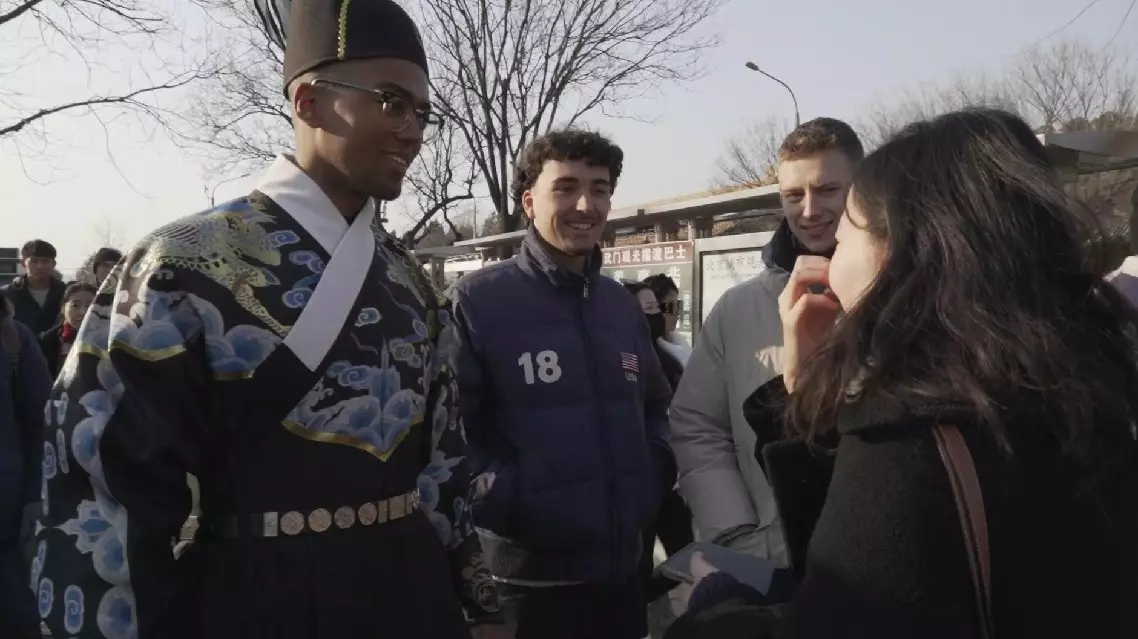
China's relaxed visa-free transit policy ignites passion for Chinese culture, boosts tourism
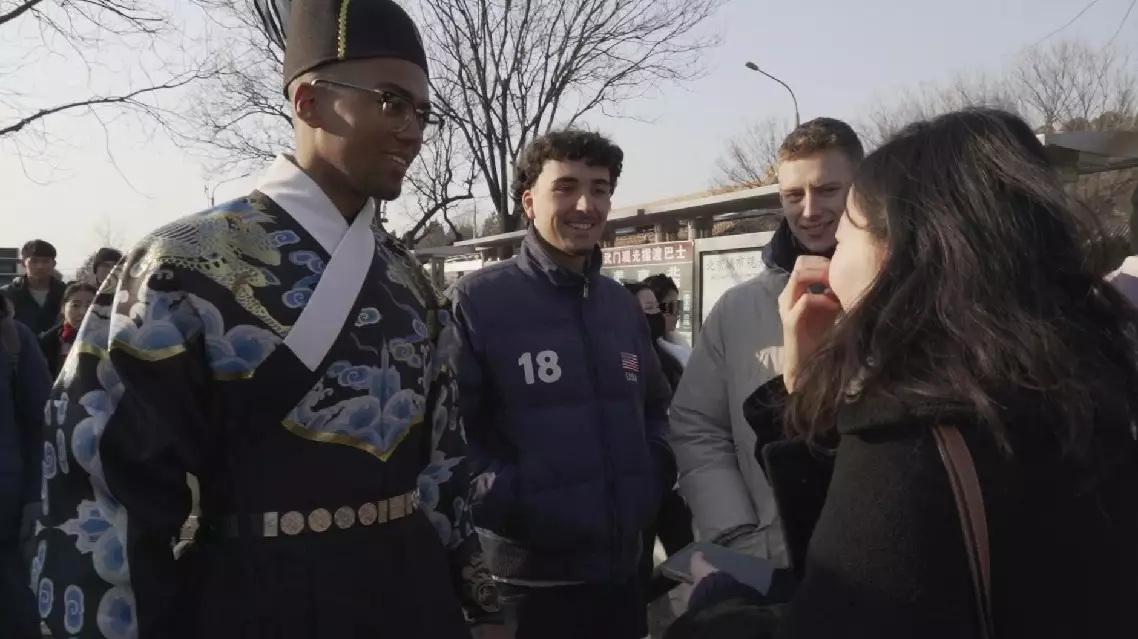
China's relaxed visa-free transit policy ignites passion for Chinese culture, boosts tourism

China's relaxed visa-free transit policy ignites passion for Chinese culture, boosts tourism
Governments at all levels across China are promoting consumer goods trade-ins and industrial equipment upgrade with preferential policies and subsidies, bringing about significant growth in home appliance sales and equipment production. So far this year, the trade-in policies have brought a total sale of one trillion yuan (about 137 billion U.S. dollars) nationwide, and boosted production of trade-in-related goods like new energy vehicles (NEVs) and home-use freezers.
In Shanghai, in addition to the eight categories of nationwide subsidized products, like refrigerators, television sets, and computers, the local government introduced extra subsidies for additional home appliances, as well as interior materials, furniture, elderly-friendly products, and more to meet local needs.
According to statistics, Shanghai's trade-ins of home appliances have exceeded 6.4 million times, boosting trade of the eight categories by 30 to 40 percent compared to last year's statistics, and the total sales of home appliances on all platforms exceeded 10 billion yuan (about 1.37 billion U.S. dollars).
In central China's Hubei Province, the local government is providing subsidies unlimited times for passenger vehicles trade-ins, expanding subsidized kitchen and bathroom appliances, and involving interior goods and materials to the list, benefiting consumers in over 4.5 million transactions and bringing a total sale of 50 billion yuan (about 6.8 billion U.S. dollars).
In the first three quarters, industrial equipment upgrade policies have stimulated investments in equipment and tools, featuring a 16.4 percent year-on-year increase, with food manufacturing, agricultural products processing, and metal smelting equipment production increasing by 38.1 percent, 34.6 percent, and 13.2 percent, respectively.
In addition to consumer goods, governments at all levels have been actively offering allowances and providing guidance for companies to upgrade appliances and technologies to facilitate domestic consumption "We have applied for nearly 50 million yuan (about 6.8 million U.S. dollars) funding for equipment upgrades. With active advertising and mobilization, we encouraged local advantageous companies in machinery and medicine and health to apply, and provide guidance for them on company digitalization and technology upgrade," said Yu Biao, deputy director of the Development and Reform Bureau of Xinchang County in Shaoxing City of east China's Zhejiang Province.
Companies are also benefiting from the policy, and many are pursuing expansion with government allowances.
"We have benefited from the 'one-time pre-tax deduction policy for equipment and tools under 5 million yuan (about 680,000 U.S. dollars)' and reinvested additional funds for the Phase II expansion. As a result, the annual processing capacity has increased from 80,000 tonnes to 130,000 tonnes," said Tang Kaibo, general manager of Liaoning Lvyuan Renewable Energy Development Co., Ltd.
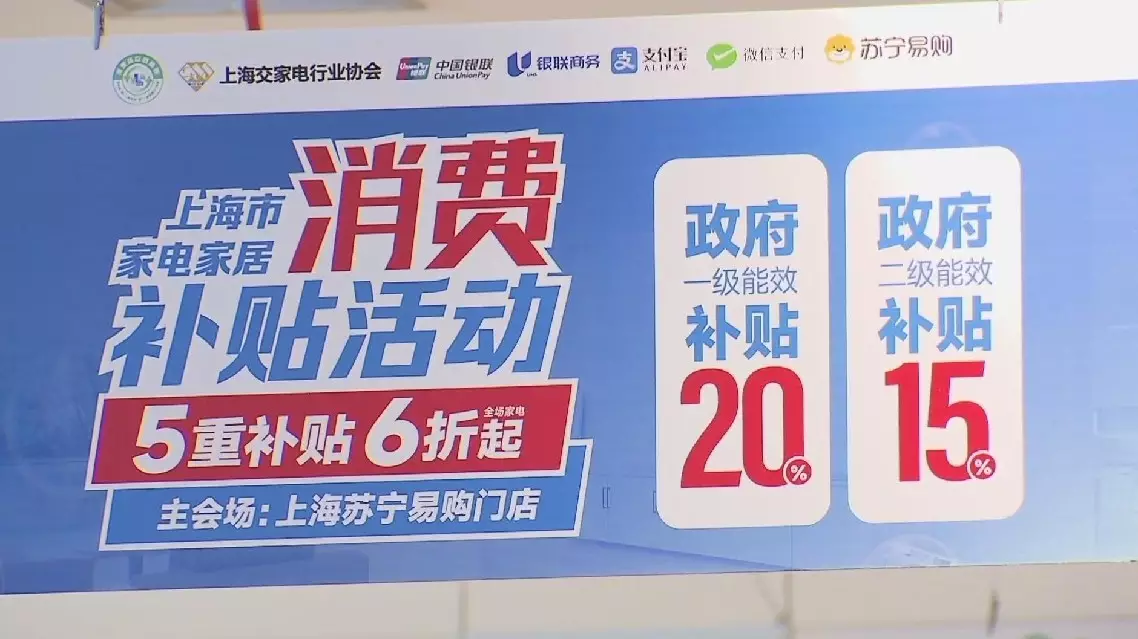
Local governments promote trade-ins, equipment upgrade with policies, subsidies








